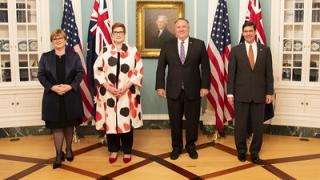On September 9, the White House reported that President Joe Biden and China's President Xi Jinping held a lengthy, substantive phone conversation. The U.S. initiated the call, after months of no contact between the two leaders, a period of time in which tensions escalated significantly, especially around Taiwan and the South China Sea. The White House described the interaction with Xi as a "broad, strategic discussion", and the Chinese said the call ended with a pledge to keep up "in-depth communication between the leaders of China and the U.S." Biden said that he wants no "new Cold War", and he sent National Security Adviser Jake Sullivan to hold a follow-up meeting with China's top diplomat, Yang Jiechi, in Zurich on October 6. Both sides confirmed there is a plan in the works to convene a virtual Biden-Xi summit before the end of the year. Of note was a comment by Biden the day before the Sullivan-Yang meeting, that the U.S. will "abide by the Taiwan agreement", which was interpreted to mean the "One-China policy", which the U.S. has supported since diplomatic relations were restored in 1979. Under this and subsequent agreements, the U.S. acknowledges that Taiwan is part of China, and has had no troops permanently stationed on the island since then.However, the tension has been ramped up, with White House spokeswoman Jen Psaki insisting that Chinese flights into Taiwan's air defense identification zone (ADIZ) -- which have increased dramatically since the beginning of October -- are "provocative military activities", even though they do not violate international law. Secretary of State Blinken called these flights a "provocation and potentially destabilizing", and demanded they "need to stop these actions." Meanwhile, the U.S., the U.K. and France continue to send warships through the Taiwan Strait, as part of a broader containment strategy, which includes open discussion of an "Asian NATO," and the consolidation of an new anti-China security pact, the AUKUS agreement between the U.S., the U.K. and Australia, featuring the sale of U.S. nuclear subs to Australia. While all parties in the AUKUS pact insist that the agreement does not target China, deployment of a fleet of nuclear subs based out of Australia makes up for the lack of viable land-based launch sites as part of the military containment of China. Numerous American military officials have stated that such alliances and joint deployments are necessary, as they believe a war with China is becoming more likely. Admiral Philip Davidson, the commander of the U.S. Indo-Pacific command, told a Congressional hearing in March that he thinks a Chinese invasion of Taiwan could occur within the next six years. Taiwan's Defense Minister Chiu Kuo-cheng said last week that he thinks China may mount an invasion by 2025! That U.S. military deployment is being shaped by a slight amendment to classic British geopolitical concepts regarding "Eurasia", to cohere with the "Pivot to Asia" policy first mooted by President Obama, was evident in a speech delivered by Major General Brad Gericke, the U.S. Army director for strategy, planning and policy, as reported in the Oct. 12 "Breaking Defense." Gericke said, "I would argue that the land domain is the essential domain...it is Asia that is the prize...And that's where... economic, military, social information power is going to primarily emanate from over the next century." Adding to the tension was a report in the {Wall Street Journal}, later confirmed by a Pentagon official speaking with AFP, that American special forces have been training Taiwan Army and Navy personnel during the last year. The Chinese responded sharply to this, warning that if fighting breaks out, the Americans will be among the first targets. There is thus a wide gulf between Biden's emphasis on diplomacy to avoid a "new Cold War", and the actions and statements coming from U.S. military officials, which indicate many of them have a strong belief that a war is coming. In Congressional hearings in the aftermath of the U.S. withdrawal from Afghanistan, it was evident that Biden's commitment to end the war was not shared by top Pentagon and intelligence officials, or by the vast majority in Congress in both parties. This divergence is a legitimate concern for the leaders of China, and adds to the danger of war breaking out due to "miscalculation".






